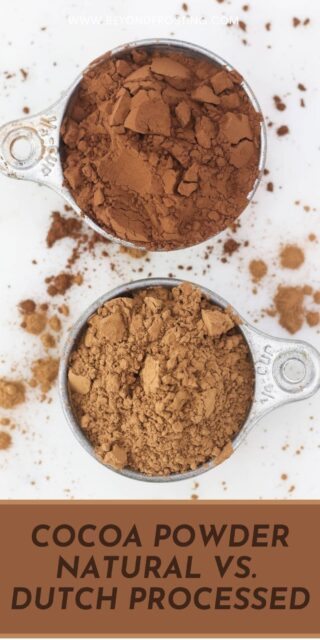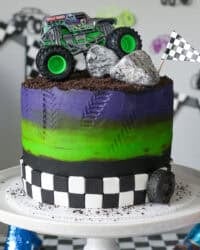If you’ve ever wondered what the deal is with Natural Cocoa Powder vs Dutch Processed cocoa powder, you’re definitely not alone. That’s why I created this handy guide that explains what each one is and helps you choose between them!
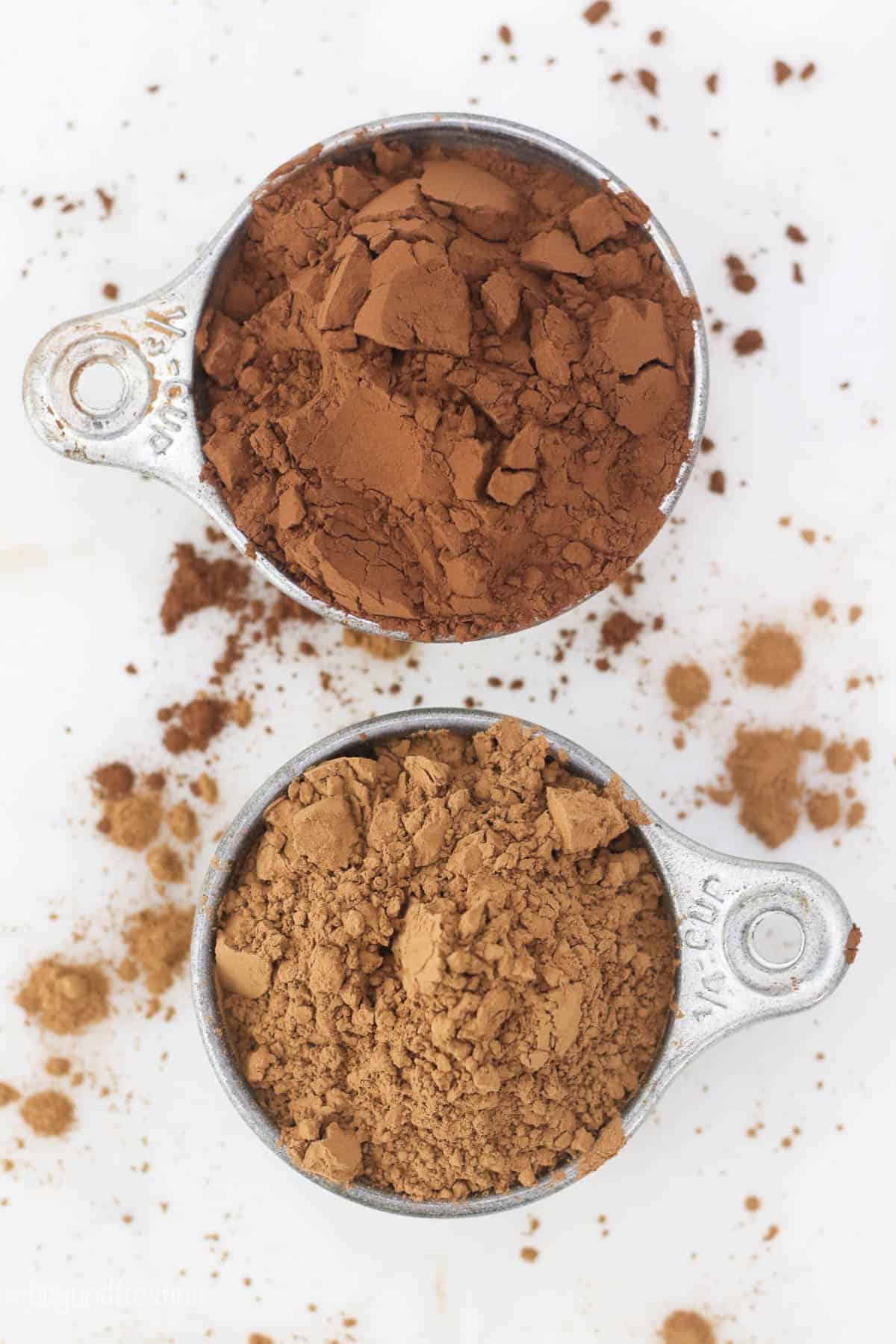
The Different Kinds of Cocoa Powder – An Overview
It’s hard to decide whether to use natural or dutch processed cocoa powder when you can’t tell the difference between the two. I struggled with this choice when I started baking, but these days I know which one to grab without a second glance! I’m here to spill the beans about all things cocoa powder, no pun intended.
There’s a long, highly scientific process that produces cocoa powder from the fermented, dried, and roasted beans of the cacao tree. It involves cracking the beans open and pressing to remove the majority of the cocoa butter. This isolates the chocolate liquor – composed of the remaining butter and the solids from the cocoa bean – used to make all sorts of chocolate products.
Some of that chocolate liquor is dried and ground into cocoa powder. So why are there two different types?
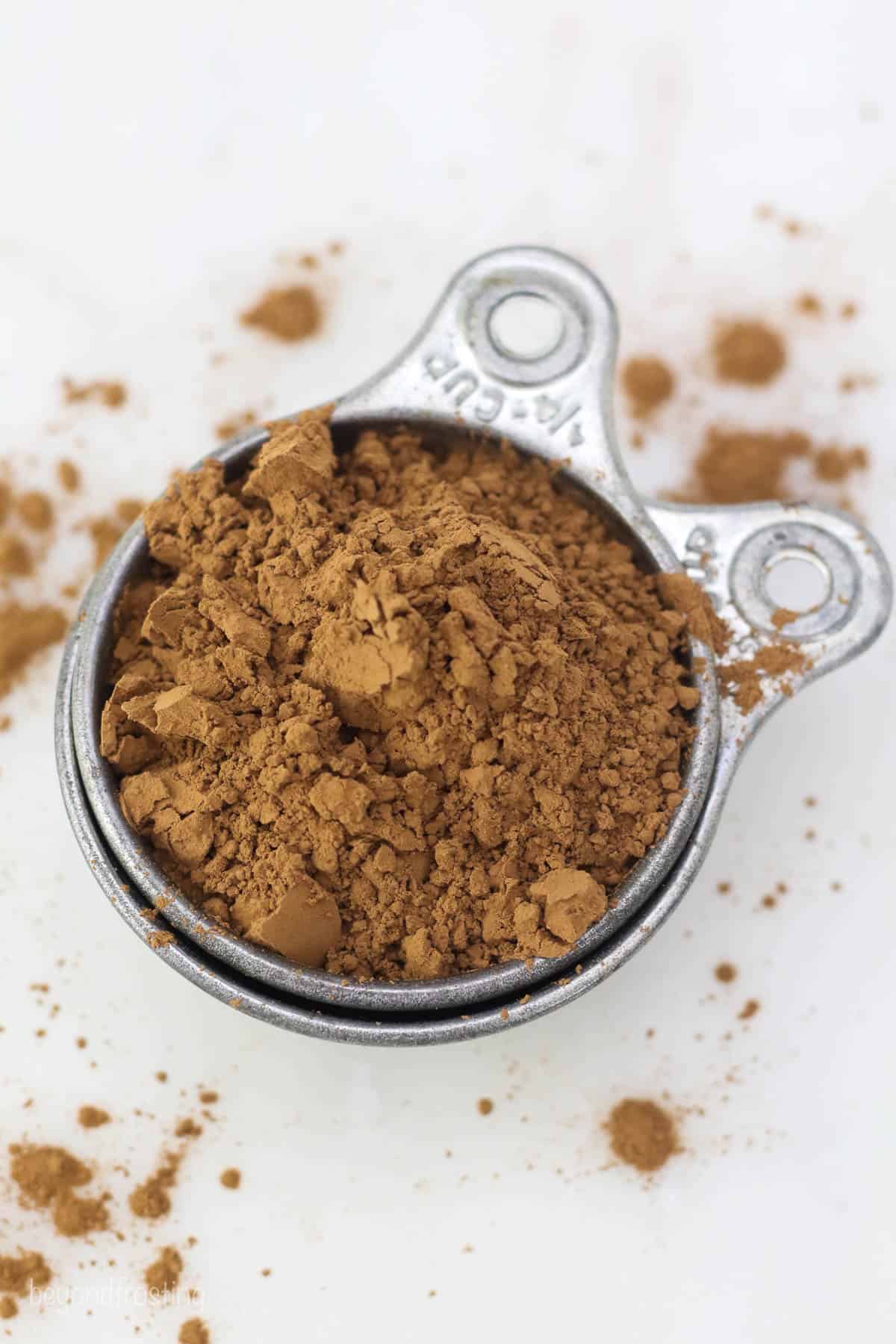
What is Natural Cocoa Powder?
The first kind of cocoa powder we’ll cover is the kind we just went over how to make. Natural cocoa powder comes from beans that have not been treated prior to their fermentation. It has a very intense cocoa flavor and a bitter taste on its own. This kind of cocoa powder is usually what commercial brands offer, from Ghirardelli to Hershey’s (not including Hershey’s Special Dark).
Since natural cocoa powder is an acid, it’s most often paired with a base – i.e. baking soda rather than baking powder. But we’ll talk more about that later.
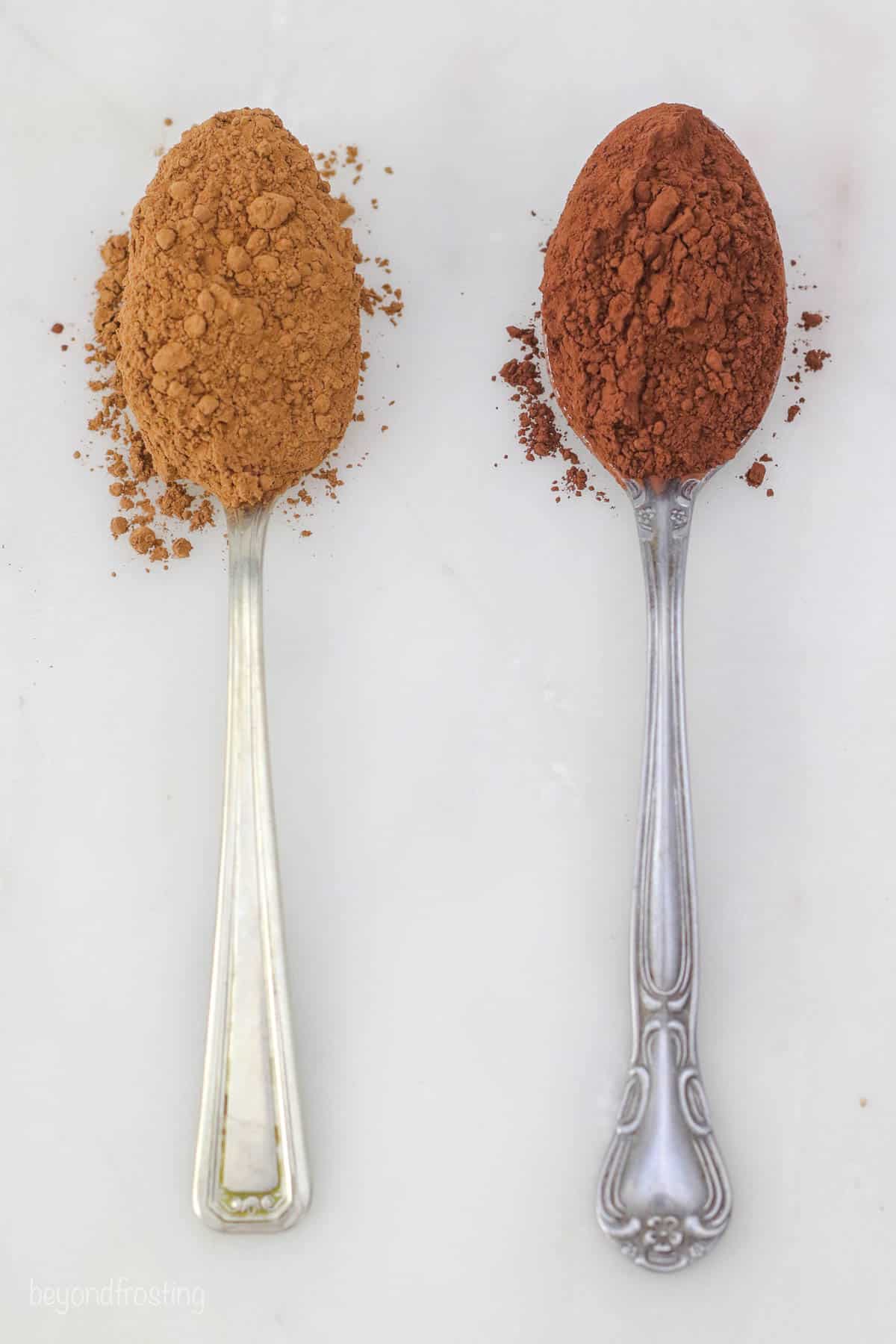
What is Dutch Processed Cocoa Powder?
Dutch-processed cocoa powder is made from cocoa beans that have been treated with potassium carbonate – a basic solution that renders the cocoa powder neutral. That is, it’s neither an acid nor a base. Compared to natural cocoa powder, it’s less concentrated in flavor, darker in color, and better at dissolving into liquids.
Due to the neutrality of Dutch-processed cocoa powder, it is commonly used in recipes that call for baking powder rather than baking soda. However, there are other factors that may impact your decision about which kind of cocoa powder to grab.
What Is Black Cocoa Powder?
Black cocoa powder is a type of heavily Dutched (a.k.a. alkalized) cocoa powder. Black cocoa powder is darker in color, with a smooth texture. It has a less bitter taste than Dutch-processed or natural cocoa powders. I’ve heard many people say that black cocoa tastes almost less like chocolate than other types of cocoa!
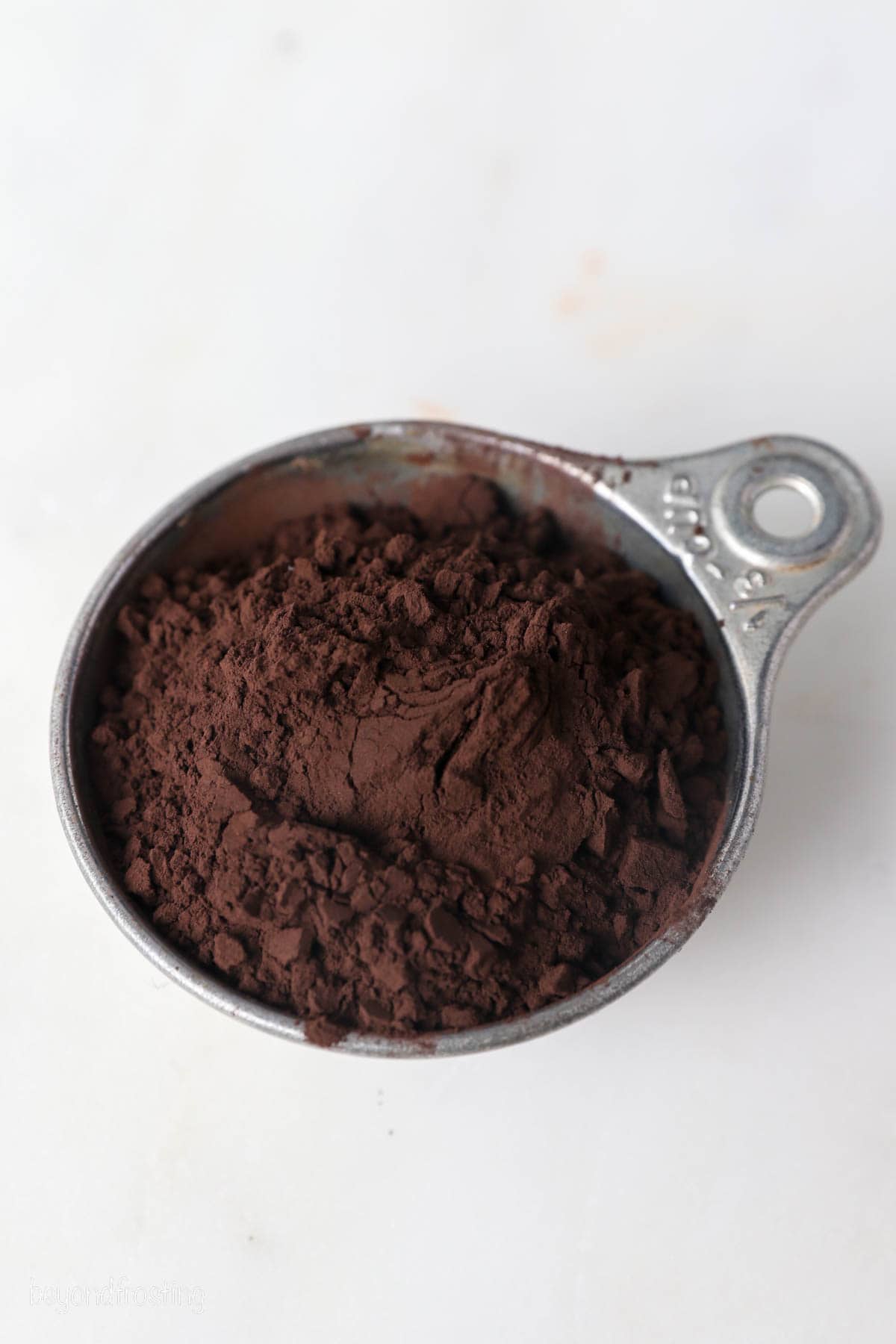
When to Use Each Type
Either type of cocoa powder will work for any recipe that doesn’t involve a leavening agent (baking soda or baking powder). Remember that natural cocoa powder will give you a stronger chocolate flavor even though Dutched cocoa powder has a darker color. I know, looks can be deceiving.
Meanwhile, black cocoa powder is very black, with even less chocolate flavor. It colors just about anything it touches. This makes it a wonderful natural coloring option in recipes. You can see the difference in baked goods made with black cocoa powder. They’ll be much darker than baked goods made with other types of cocoa powders. (Just be careful when wearing white or light-colored clothing!)
It’s also important to remember that Dutch-processed and black cocoa powder (alkalized) are not simply interchangeable with natural (acidic) cocoa powder in recipes. Here’s a good rule of thumb to follow:
- If the recipe calls for baking soda as leavening, stick with natural cocoa powder.
- If a recipe calls for baking powder, it’s fine to swap between natural and black cocoa powder. Or, you can go half and half. This also applies to recipes that don’t use any leavening, as mentioned above.
So, while you could technically use natural cocoa powder to replace Dutch-processed cocoa powder in a pinch, it doesn’t work the other way around. Your baked goods will bake up flat and sunken. For best results, avoid altering a recipe that requires more than 3/4 cups of cocoa powder. And, when in doubt, stick with whatever the recipe states. That way, you won’t run into any undesired textures in your baked goods.
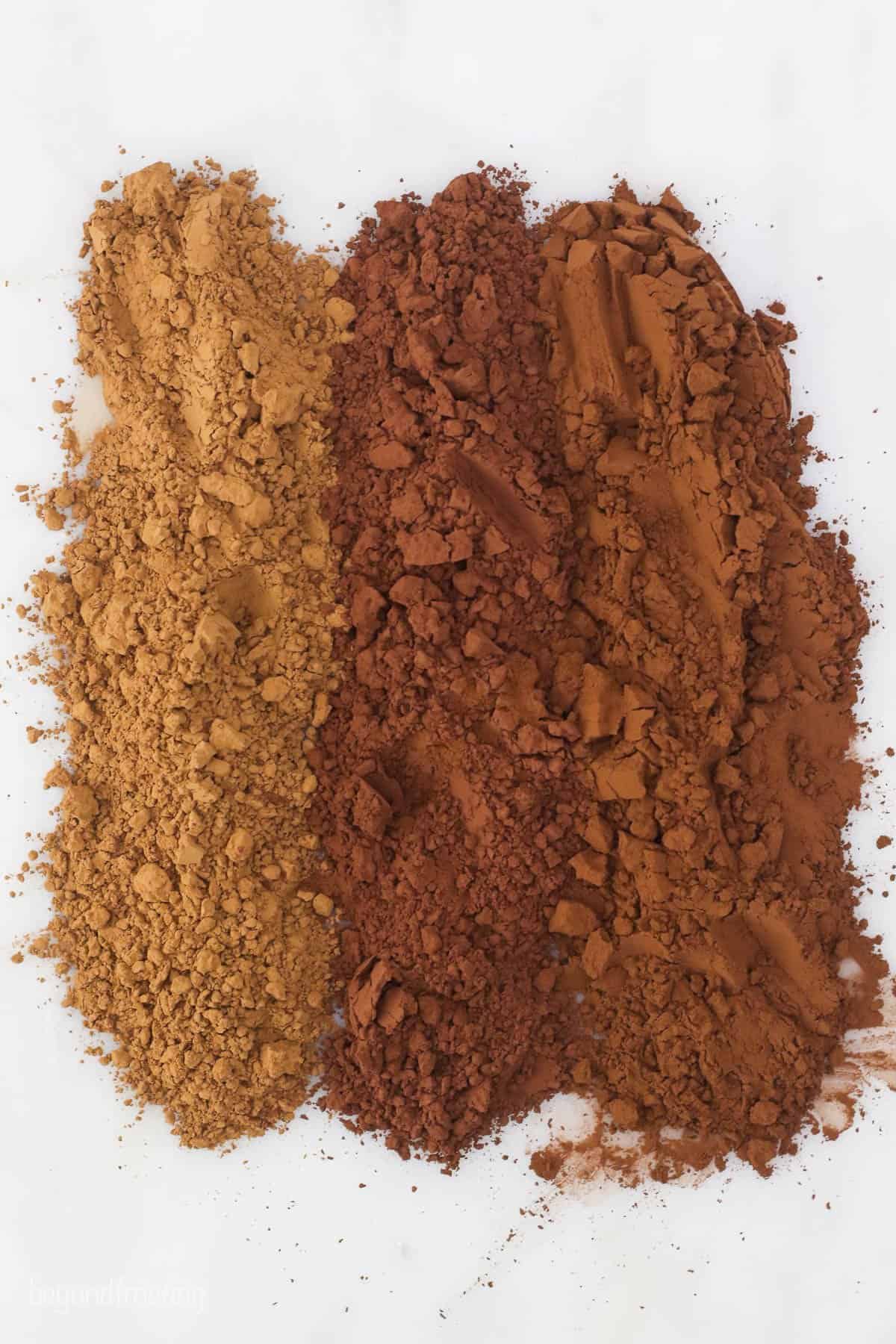
Properly Storing Your Cocoa Powder
Be sure to keep your cocoa powder somewhere cool and dry, but never in the refrigerator or freezer. Chilling it actually makes it spoil faster as it causes moisture to form. Properly stored cocoa powder will stay good for up to a year!
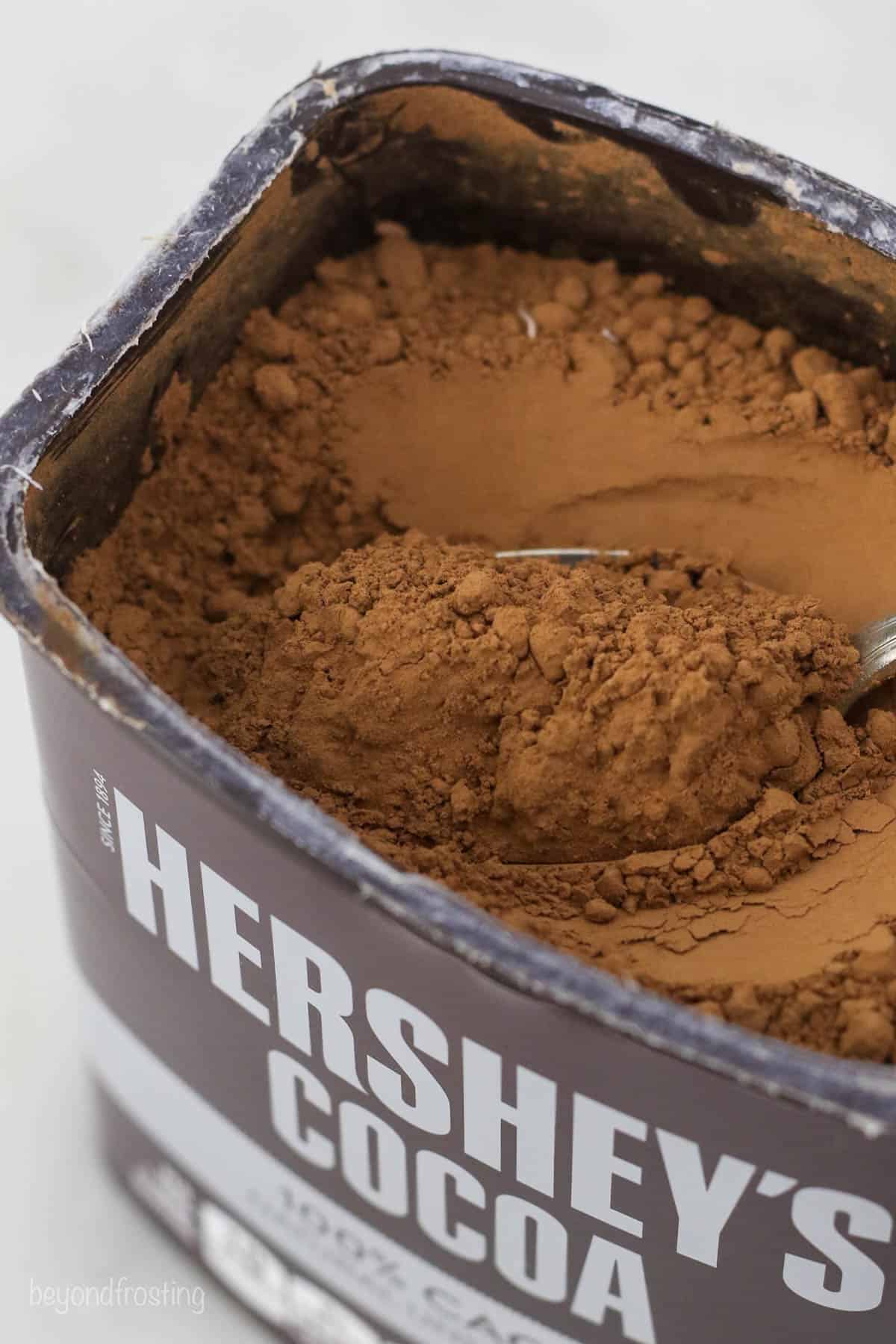
More Helpful Baking Tips
Still, getting comfortable in the kitchen? I’ve got some more must-have baking advice that’s sure to help you out.

